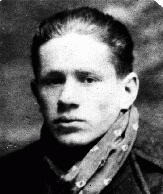You searched for: 金融游戏理财系统定制开发【TG���������@EK7676】平台包网搭建金融游戏理财系统定制开发【TG���������@EK7676】平台包网搭建39dbZbaSb9
<< Previous | Displaying results 501-550 of 619 for "金融游戏理财系统定制开发【TG���������@EK7676】平台包网搭建金融游戏理财系统定制开发【TG���������@EK7676】平台包网搭建39dbZbaSb9" | Next >>
-
Jolan (Cipi) Katz
ID CardThe oldest of eight children, Jolan grew up in a religious Jewish family. She was usually known by her Yiddish nickname, Cipi. After Jolan was born, her parents moved the family to Kisvarda, a town in northeastern Hungary. There she grew up with her four sisters and one surviving brother. Jolan had finished her schooling by 1933. 1933-39: Hitler was popular in Kisvarda. Jolan's mother wanted the family to leave Hungary before the situation worsened, but her father, who had been to the United States…
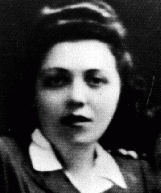
-
Maria Terez Halpert Katz
ID CardAlso known by her Yiddish name, Tobe, Terez was raised in a religious Jewish family. Her father and two brothers were rabbis. Though Terez was a promising student, she didn't pursue an advanced education because her traditional family wanted her to marry. So Terez married Menyhert Katz and moved to the town of Kisvarda [in Hungary]. There, she raised five daughters and one son; two other sons died. 1933-39: Terez's twin sons died when they were 8 months old, and she was convinced that their death was a…
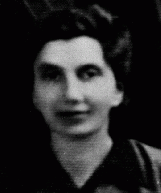
-
Izabella Katz
ID CardIzabella was one of eight children raised in a religious Jewish family in the small town of Kisvarda in northeastern Hungary. Every Friday Izabella and her brother and four younger sisters went to the library to borrow the maximum number of books for their mother. Izabella attended public schools and longed to move to a big city. 1933-39: Antisemitism was prevalent. Izabella can't count the number of times she was called "smelly Jew." Her family cringed at "Heil Hitler" speeches from Germany on the radio…
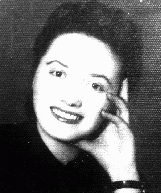
-
Leon Anderman
ID CardLeon was born to Jewish parents living near Tarnopol, then part of the Austro-Hungarian empire. During World War I, he was an officer in the Austrian army. Following his enlistment, Leon attended medical school in Vienna. After graduating in 1923, he opened a general medicine practice in Kolbuszowa, a town in south central Poland. He was one of the town's two physicians. 1933-39: Leon had never been active in Jewish affairs, but when the Germans deported Jews from their country in 1938, he felt compelled…
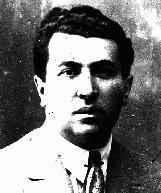
-
Susanne Ledermann
ID CardSusanne was the younger of two daughters born to Jewish parents in the German capital of Berlin. Her father was a successful lawyer. Known affectionately as Sanne, Susanne liked to play with her sister on the veranda of her home and enjoyed visiting the Berlin Zoo and park with her family. 1933-39: After the Nazis came to power in January 1933, it became illegal for Jewish lawyers to have non-Jewish clients. When Susanne was 4, her father's law practice closed down and the Ledermanns moved to the…
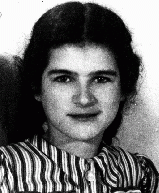
-
Franz Anton Ledermann
ID CardFranz was raised in a town in eastern Germany. The son of Jewish parents, he earned a law degree from Breslau University and a doctorate of jurisprudence from Geneva University in Switzerland. At the age of 35 he married Ilse Luise Citroen, a woman of Dutch-Jewish ancestry. The couple settled in Berlin where Franz had a successful law practice. The Ledermanns had two daughters. 1933-39: The Nazis came to power in January 1933. Ilse's Dutch relatives encouraged the Ledermanns to immigrate to the…
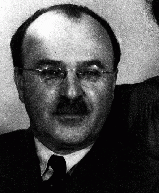
-
Ilse Luise Citroen Ledermann
ID CardIlse was one of four children born to a Dutch-Jewish father and a German-Jewish mother. In 1924 she married Franz Ledermann, a successful lawyer who was 15 years her senior. The couple made their home in Berlin, where they raised two daughters, Barbara and Susanne. 1933-39: The Nazis came to power in January 1933. While the Ledermanns were vacationing in Holland that summer, Ilse's Dutch cousin advised her not to return to Germany. Franz was reluctant to remain in Holland without a job, but when the Nazis…
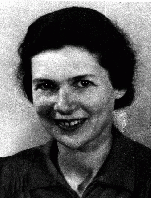
-
Gert Laske
ID CardGert was born to a Jewish family settled in northeast Berlin, known as one of the city's "red" (largely communist) districts. They lived in a large tenement building. Gert's parents were from the eastern part of Germany, which had been ceded to Poland in 1919. His father, proud of his Iron Cross, Second Class, earned in World War I, was active in an association of Jewish veterans. 1933-39: After Hitler came to power, a neighbor told Gert's mother that they couldn't greet each other on the street…
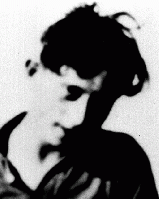
-
Onti Lazar
ID CardOnti, the youngest of five sons, was born to religious Jewish parents in northern Transylvania, a region of Romania that had belonged to Hungary until 1918. Onti's family usually called him Usher, which was the diminutive of his Yiddish name, Anschel. As a little boy, he liked collecting figurines. Though Onti grew up in a Hungarian-speaking home, he attended Romanian public schools. 1933-39: At age 13 Onti quit school to help make ends meet. He wanted to become a watchmaker, but he settled on working as…
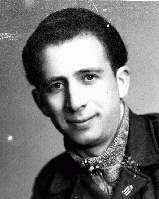
-
Felicia Karo
ID CardFelicia grew up in a Jewish family living in a predominantly Catholic neighborhood in the large, industrial city of Lodz. Her father's side of the family had lived in Poland for 400 years. He was the principal of a Jewish secondary school for boys. Known affectionately by family and friends as Lusia, Felicia attended a bilingual Jewish school in which both Hebraic and Polish subjects were taught. 1933-39: When Felicia was 12 she heard a lot of bad things about the Nazis. A Polish-born German Jewish…
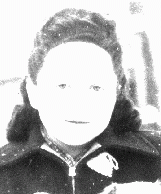
-
Josel Gerszonowicz
ID CardThe oldest of eight children, Josel was born in Miechow, a small town in south central Poland. His father was a machinist and locksmith. As a boy, Josel spent long days learning Hebrew in the Jewish school and taking general subjects at the public school. He was 13 years old when he left school to work in his father's shop. 1933-39: Josel met his wife, Esther, through a matchmaker, and they settled in nearby Dzialoszyce, a town with a Jewish community of about 7,000, and a beautiful synagogue that had…
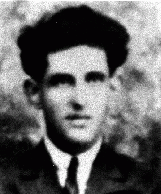
-
Frieda Greinegger
ID CardFrieda was the fourth of five children born to strict Catholic parents. She had one brother and three sisters. Frieda grew up on a large farm near the village of Michaelnbach in northern Austria. The farm had cattle, horses, pigs and poultry, and the children worked long hours helping their parents on the farm. At age 12, Frieda left school to work full time on the farm. 1933-39: Germany annexed Austria in March 1938. When war broke out in September 1939, Frieda's brother was drafted into the German army.…
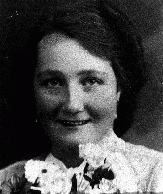
-
Iosif Kirzhner
ID CardIosif was the second of four boys born to a Jewish family in the southern Ukrainian port of Odessa, a city with the largest Jewish community in the Soviet Union before World War II. Iosif's father worked as a hat maker, while his mother raised the family. 1933-39: In 1936 Iosif joined the Red Army and was trained to drive a tank. After Germany invaded Poland on September 1, 1939, the Soviet Union took advantage of its nonaggression pact with the Germans to claim Finnish territory. The Finns resisted them…
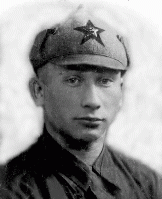
-
Morris Kornberg
ID CardMorris was the youngest of six children born to a religious Jewish family in Przedborz, a south central Polish town with a large Jewish population. Morris' family owned a business that supplied nearby factories with raw metal materials. 1933-39: When Germany invaded Poland in early September 1939 Morris and his family fled to the woods. They returned a few days later; most of the town had been burned down. The Nazis set up a ghetto and ordered everyone age 13 to 50 to report for work details. His family…
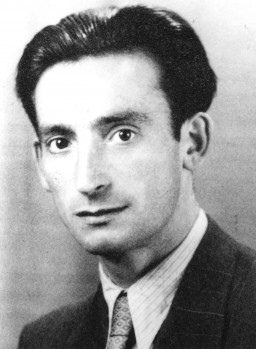
-
Semyon Menyuk
ID CardSemyon was born to a Jewish family in the small village of Komarovo in Polish Ukraine. His parents were farmers and tended their own fields while managing the estate of a Polish landowner who lived in Warsaw. Of the estimated 200 families living in Komarovo, only five were Jewish. 1933-39: Since there was no Jewish school in their town, Semyon's parents sent him to the nearby city of Sarny to study. He finished school in 1938 and returned to Komarovo to help his parents with their farm. But in September…
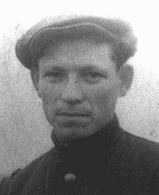
-
Hetty d'Ancona
ID CardHetty was the only child of a middle-class secular Jewish family. Hetty's parents were Sephardic, the descendants of Jews who had been expelled from Spain in 1492. The family lived in an apartment above her father's clothing business. Hetty's grandparents and other relatives lived nearby. 1933-39: Hetty enjoyed growing up in the Netherlands. Her Jewish neighborhood was in the older part of Amsterdam, in the city center. When she was 6 years old, she began attending a public school. Everywhere in Amsterdam…
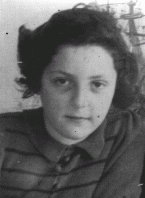
-
Dorotka Goldstein
ID CardDorotka was the youngest of three children in a Jewish family. Her father was the director of the Jewish Telegraphic Agency in Warsaw and worked for a popular newspaper. An avid Zionist, he had traveled to Palestine. 1933-39: Dorotka's father established a soup kitchen in Warsaw for Jewish refugees who had fled from Germany. In September 1939 Dorotka was supposed to begin first grade when war broke out. Her father escaped to Vilna with other Jewish leaders. People were suffering, but she didn't understand…
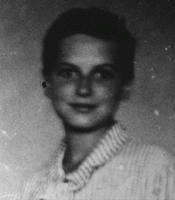
-
Elka Rosenstein
ID CardElka was raised in a large, Yiddish-speaking Jewish family in Sokolow Podlaski, a manufacturing town in central Poland with a large Jewish population of some 5,000. Elka was 14 when she graduated from middle school. After completing her schooling, she became a tailor. Working at home, she made clothes for different clothiers in town. 1933-39: Elka was unmarried and living with her parents when war between Germany and Poland broke out on September 1, 1939. German aircraft bombed Sokolow Podlaski's market…
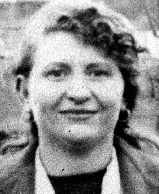
-
Laura Litwak
ID CardLaura was the second of five children born to religious Jewish parents in the industrial city of Lvov. She was often called affectionately by her nickname, Lorka. Coming from an educated family living in a multi-ethnic part of Poland, she grew up speaking Polish, Russian, German and Yiddish. As a young woman, she earned a humanities degree from St. Nicholas University in Lvov. 1933-39: In April 1935 Laura became Mrs. Daniel Schwarzwald. Her husband was a successful lumber exporter, and they lived in a…
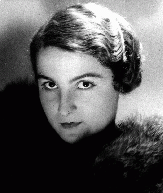
-
Selma Schwarzwald
ID CardBoth of Selma's Jewish parents, Daniel Schwarzwald and Laura Litwak, had been raised in the industrial city of Lvov. As many different nationalities lived in Lvov, Selma's mother and father could speak many languages--Polish, Russian, German and Yiddish. In running his successful lumber business, Daniel also occasionally used English. 1933-39: Selma's parents married in April 1935 and she was born two years later. Her father was afraid that there might be a war and wanted to move the family to safety in…
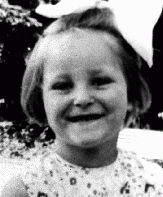
-
Max Diamant (now Josef Burzminski)
ID CardMax was born to a Jewish family in the Austrian capital of Vienna. When he was a small child his family moved to Przemysl, an urban center in southeastern Poland with a largely Jewish population. Max spent the remainder of his childhood there; his parents ran a small grocery and cafeteria to support their five children. 1933-39: The Germans reached Przemysl on September 14, 1939. It was a brilliant sunny day when planes suddenly appeared; Max's family thought the planes were their own until they began…
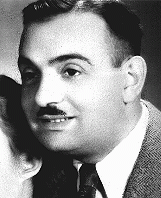
-
Mojsze Kisielnicki
ID CardMojsze, his wife Raizel and their three children lived 35 miles east of Warsaw in the small, predominantly Jewish town of Kaluszyn. Mojsze had gone to Jewish schools and supported Zionist ideals. By the early 1930s, he owned a wholesale grocery store, a restaurant and a gas station, all of which were located on the heavily traveled main road. 1933-39: Mojsze is at the World's Fair in Paris with his sister, Ruchel. She immigrated here in the 1920s with her husband, who owns a successful tailor shop. When…
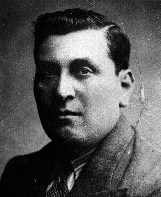
-
Raizel Kisielnicki
ID CardRaizel lived with her husband, Mojsze, and their three children in the small, predominantly Jewish town of Kaluszyn, which was 35 miles east of Warsaw. By the 1930s, Mojsze owned a grocery store, a restaurant, and a gas station, all of which were located together on the heavily traveled main road. The family lived in rooms in the same building as their business. 1933-39: Every day Raizel prepares the roast goose served in the family's restaurant. They have a bustling business, as many truck drivers stop…
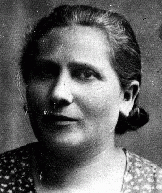
-
Chaie Sura Kisielnicki
ID CardChaie Sura was the youngest of three children born to Jewish parents living 35 miles east of Warsaw in the small, predominantly Jewish town of Kaluszyn. Her father owned a wholesale grocery store, a restaurant and a gas station, which were located together on the busy main road. The Kisielnicki family lived in rooms in the same building as their business. 1933-39: When Germany invaded Poland several days ago, Chaie Sura's father and brothers fled eastward towards the USSR with other Jewish men who were…
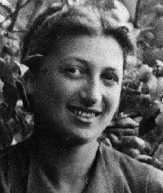
-
Abram Kisielnicki
ID CardThe oldest of three children, Abram was born to Jewish parents in the small, predominantly Jewish town of Kaluszyn, 35 miles east of Warsaw. Abram's father owned a wholesale grocery store, a restaurant and a gas station, all of which were located on the heavily traveled main road. Abram went to public elementary school and also received religious instruction. 1933-39: Abram was 21 when the Germans invaded Poland. Abram, his father, and his brother Majlech fled eastward towards the Soviet Union because…
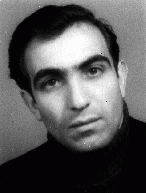
-
Majlech Kisielnicki
ID CardThe second of three children, Majlech was born to Jewish parents living 35 miles east of Warsaw in the small, predominantly Jewish town of Kaluszyn. Majlech's father owned a wholesale grocery store, a restaurant and a gas station, all of which were located on the heavily traveled main road. Majlech attended public elementary school and also received religious instruction. 1933-39: Majlech and his pals, Mindele, Sara and Adam loved to discuss politics. They'd heard the Polish propaganda claiming that…
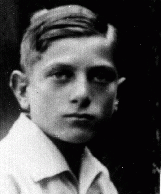
-
Idzia Pienknawiesz
ID CardIdzia was the older of two girls born to Jewish parents who lived 35 miles east of Warsaw in the small predominantly Jewish town of Kaluszyn. Idzia's father owned a liquor store and her mother was a housewife. Idzia was close friends with a group of Jewish teenagers who went to the same public school and spent much of their free time and vacations together. 1933-39: Normally, Idzia goes out with her friends on pleasant summer evenings. They like to stroll down the main street together and visit the sweets…
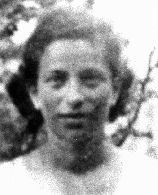
-
Ezra BenGershom
ID CardEzra was born to a Jewish family in the Bavarian city of Wurzburg. In the summer of 1929, his father, a third-generation rabbi, accepted a position as a district rabbi, guiding 12 congregations in Upper Silesia. In primary school, Ezra, who showed a keen interest in chemistry, was often harassed by his schoolmates for being Jewish. 1933-39: Because of his "Nordic" features, Ezra was able to frequent places where Jews couldn't go. In 1938, one year after he entered a Jewish secondary school in Berlin, the…
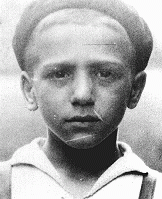
-
Frederic Bernard
ID CardFrederic was born to a Jewish family in Czernowitz (Chernovtsy). His father was head clerk in a lawyer's office and his mother was a pianist. Frederic's parents were active in Czernowitz's sizable Jewish community. In 1930 Frederic began medical studies at the German University in Prague, Czechoslovakia. 1933-39: Frederic left Prague in 1933. He went to France and then Italy to finish his studies and graduated in 1936. He wanted to leave Europe to escape Hitler and tried to do so by applying to the…
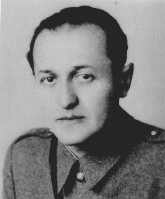
-
Johanna Falkenstein Heumann
ID CardThe oldest of five children, Johanna was born to Jewish parents living in a small town near Cologne. Her father owned a cigar factory. After Johanna graduated from high school, she worked in a bank in Cologne. At 22 she married Carl Heumann and the couple settled in the village of Hellenthal near the Belgian border. There they owned a general store. The couple had two daughters, Margot and Lore. 1933-39: A year ago Johanna's family moved to nearby Bielefeld, and she enrolled Margot and Lore in the city's…
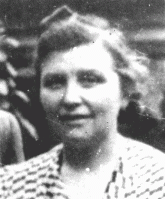
-
Nina Szuster
ID CardNina was born to a Jewish family in the Polish town of Rokitnoye. Her father built ovens. Nina's family was very diverse: her father was an Orthodox Jew, her brother was a militant Zionist, and her mother leaned towards communism. Nina attended a Jewish school in the town. 1933-39: In September 1939 the Soviet Union invaded the eastern half of Poland. All businesses were quickly nationalized and property was seized. The Soviets distributed most of the town's wealth to the poor in the area. Nina's mother…
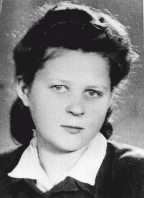
-
Josef Malnik
ID CardRaised in a Jewish family, Josef lived with his wife, Feiga, in Kovno, a cosmopolitan city that was picturesquely situated at the juncture of two rivers and was known as the "Little Paris." Josef was a barber, his wife was a beautician, and together they ran a shop in downtown Kovno. 1933-39: Every day Josef and Feiga walk to their shop which is not far from their house. It's hard work being a barber--Josef is on his feet most of the day, seven days a week including a couple of hours on Sunday. He has…
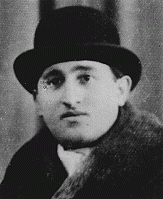
-
Margot Heumann
ID CardThe older of two girls, Margot was born to Jewish parents living in a village close to the Belgian border. The Heumanns lived above their general store. Across the street lived Margot's grandfather, who kept horses and cows in his large barn. When Margot was 4, her family moved to the city of Lippstadt. As a young girl, she learned to swim in the Lippe River, which flowed behind their garden. 1933-39: When Margot was 9, her family moved to the nearby city of Bielefeld, where she was enrolled in public…
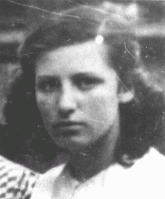
-
Sabina Low (Green)
ID CardSabina was one of four children born to a Jewish family in the Polish town of Ulanow. Her father was a landowner and cattle merchant in the area. The Jewish community in Ulanow was active, with many of its own organizations and a large library. Sabina attended public school in the morning and a private Jewish school in the afternoon. 1933-39: The public school was open Saturdays, but since it was the Jewish Sabbath, Sabina and her siblings didn't attend. They'd ask their Christian classmates for the…
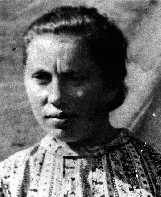
-
Edek Blonder
ID CardThe Blonder family lived in a two-room apartment in the back of a store. Edek was the third of eight children. His father eked out a meager living by tutoring students in Jewish subjects, and beginning in 1930 he worked distributing food vouchers to the poor. 1933-39: After graduating from secondary school, Edek was invited to play soccer professionally on the local Club Maccabi team, which was part of a Jewish soccer league. Club Maccabi arranged for him to attend trade school to learn cabinet making at…
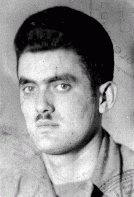
-
Jules Izrael Zajdenweber
ID CardJules grew up in a Jewish family in the industrial city of Radom, which had a large Jewish population and was known for its armaments industry. The Zajdenwebers spoke Polish and Yiddish at home. Jules' father was a textile salesman and his mother was a corset maker. Jules, whose nickname was Ulek, attended public schools in Radom and was a member of a Zionist youth organization. 1933-39: Jews weren't safe in certain neighborhoods. Some classmates at Jules's Polish state secondary school belonged to…
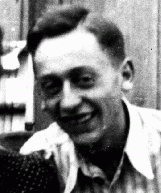
-
Sandor Alexander Bokshorn
ID CardSandor grew up in Budapest where his father was a furrier. Sandor attended a Jewish school until he was 14 and then entered a business school run by the chamber of commerce. After he graduated in 1929, he entered his father's business. Sandor then spent a year studying at the Sorbonne in Paris before entering university in Budapest to study economics. 1933-39: As a Jew, Sandor was in the minority at the university because anti-Jewish laws enacted in the 1920s had set quotas that limited Jewish applicants.…
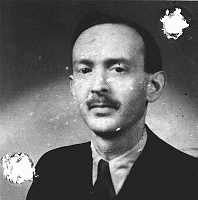
-
Frieda Altman Felman
ID CardFrieda grew up in a crowded one-room house in Sokolow Podlaski, a small manufacturing center in central Poland. Frieda's father had died when she was two years old, and her mother had then moved back to her hometown of Sokolow Podlaski, where she opened a poultry shop. The Altmans were a Yiddish-speaking, religious Jewish family, and Frieda was the youngest of four children. 1933-39: German troops entered Frieda's town on September 20, 1939. She was huddling, frightened, with family and friends in a…
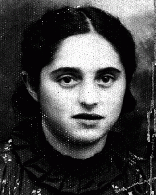
-
Charles (Karel) Bruml
ID CardCharles was born to a Jewish family in Prague, the capital of Czechoslovakia. His father owned several shoe factories there. Prague's Jewish minority enjoyed a great deal of cultural freedom because of the new democratic Republic. Though antisemitism still existed in Czechoslovakia, Prague was a relatively tolerant city. 1933-39: Charles' father's business thrived in Prague, and they lived well. Charles enjoyed painting as a child and decided to study at an art school in the city. On the morning of March…
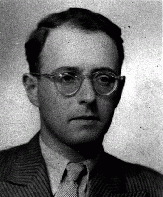
-
Fryda Litwak
ID CardFryda was one of five children born to religious Jewish parents in the industrial city of Lvov. She grew up in the same building as her paternal grandparents. Fryda attended public and private schools in Lvov, and grew up in a non-Jewish neighborhood, speaking Polish, German and Yiddish. 1933-39: When Fryda finished secondary school, she could not go to the university like her older siblings because Polish universities had instituted discriminatory quotas for Jews. In September 1939 the Germans invaded…
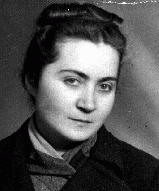
-
Welwel Wainkranc
ID CardThe third of five brothers, Welwel was born to Jewish parents who lived 35 miles east of Warsaw in the small predominantly Jewish town of Kaluszyn. His father was a cattle merchant who purchased cows and sold the meat to butchers in the Warsaw region. Welwel spent most of his free time with a group of Jewish friends who lived in his neighborhood and who attended the same public school. 1933-39: Every summer evening Welwel, Abram Kisielnicki, and some other pals, like to stroll along Kaluszyn's main…
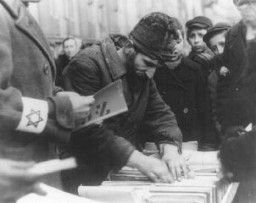
-
Thomas Elek
ID CardThomas was born to a Jewish family who moved to Paris when he was 6. His father's outspoken criticism of the fascist government and his affiliation with the Hungarian Communist Party led to the family's expulsion from Hungary in 1930. With the help of his father, a professor of modern languages, Thomas quickly learned French and excelled in school. He had a special interest in poetry and music. 1933-39: Thomas's father often argued against fascism, and he was greatly disturbed when Hitler became the…
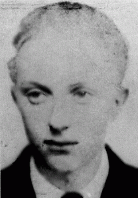
-
Chaim David Jegher
ID CardDavid was one of six children born to religious Jewish parents in Rona de Jos, a town in northwest Romania. The Jeghers subsisted through a variety of enterprises. Besides farming, they bottled their own wine and brandy and produced dried fruit for distribution in Romania and in parts of Czechoslovakia and Hungary. David's father also ran a local transportation and delivery service. 1933-39: Religious school was from 6:30 to 8:00 a.m. David's mother would wait outside the building with some breakfast for…
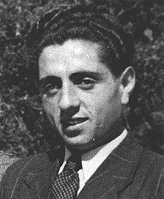
-
Ruth Gabriele Silten
ID CardGabriele was the only child of Jewish parents living in the German capital of Berlin. Her grandfather owned a pharmacy and a pharmaceuticals factory, where Gabriele's father also made his living. 1933-39: In 1938 the Nazis forced Ruth's grandfather to sell his factory and pharmacy for very little money to an "Aryan" German. After that, her father decided they should move to Amsterdam where it was safer for Jews. She was 5 years old and wanted to stay in Berlin. She didn't understand why she had to leave…
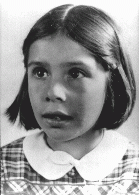
-
Fritz Silten
ID CardFritz was the youngest of two sons born to a Jewish family in the German capital of Berlin. In the late 1920s he earned a doctorate in chemistry and pharmacy. In 1931 he married Ilse Teppich, and in 1933 the couple had a daughter, Gabriele. 1933-39: Fritz worked in his father's pharmacy until 1938, when the Nazis forced them to sell the business for a fraction of its value to an "Aryan" German [Aryanization]. Leaving his parents behind was agonizing, but concern for the safety of his wife and daughter…
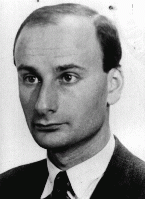
-
Ilse Silten
ID CardIlse, born Ilse Teppich, was the eldest of two daughters born to a Jewish family in the German capital of Berlin. Her father owned a dry cleaning business in the city. When Ilse finished secondary school, she was sent to a finishing school in Switzerland where she studied to be a photographer. In 1931 she married Fritz Silten. 1933-39: In 1933 Ilse gave birth to the couple's only child, a daughter named Gabriele. Five years later, when Fritz's father was forced by the Nazis to sell his business for a…
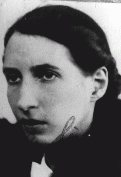
-
Ernst Silten
ID CardErnst was one of five sons born to a Jewish family in the Prussian city of Koenigsberg. He studied pharmacy and earned his doctorate in the late 1880s. Ernst spent several years as an apprentice before buying his own pharmacy in Berlin. Later, he also acquired a pharmaceuticals factory and supplied oxygen to hospitals. He married Marta Friedberg and the couple raised two sons. 1933-39: In Berlin, Ernst and his family lived in an apartment above their pharmacy and factory. In 1938 Ernst was forced to sell…
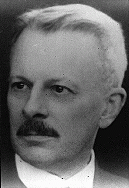
-
Ida Szczupakiewicz
ID CardIda was the oldest of three children born to a Jewish family in northeastern Poland in Malkinia, a town situated on the right bank of the Bug River. Ida's father was a grain merchant and her family lived in the same house that her grandfather had owned. 1933-39: Ida was 9 when Germany invaded Poland. At once her family hid on some nearby farms but a few weeks later they returned home. When their neighbor, her father's best friend, became a Nazi informant, her father had them each pack a small bag--they…
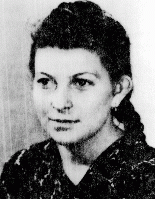
-
Marcu Butnaru
ID CardMarcu was born to Jewish parents in a small, ethnically diverse city in east central Moldavia [in Romania], a region known for its wine. He married at the age of 23, and had a son and a daughter with his wife, Anna. After World War I, Marcu followed in his father's footsteps by going into the wine making business. 1933-39: The price of wine was low due to the worldwide economic depression. Because the quality of Marcu's wine was excellent, however, it still fetched a good price. He spent much of his time…
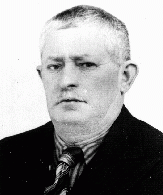
-
Ion Butnaru
ID CardIon was born to Jewish parents in a small, ethnically diverse city in east-central Moldavia [in Romania], a region known for its wine. Husi had a sizable and active Jewish population, which organized literary and artistic festivals and ran a local library. Ion's father was a wine maker and his side of the family had owned vineyards for at least three generations. 1933-39: Ion enjoyed helping his father in the family vineyards. He also did volunteer work at his local Jewish library. When he was 17, his…
